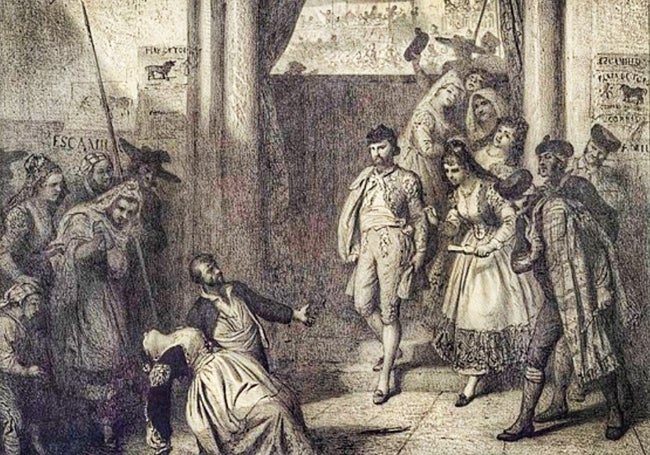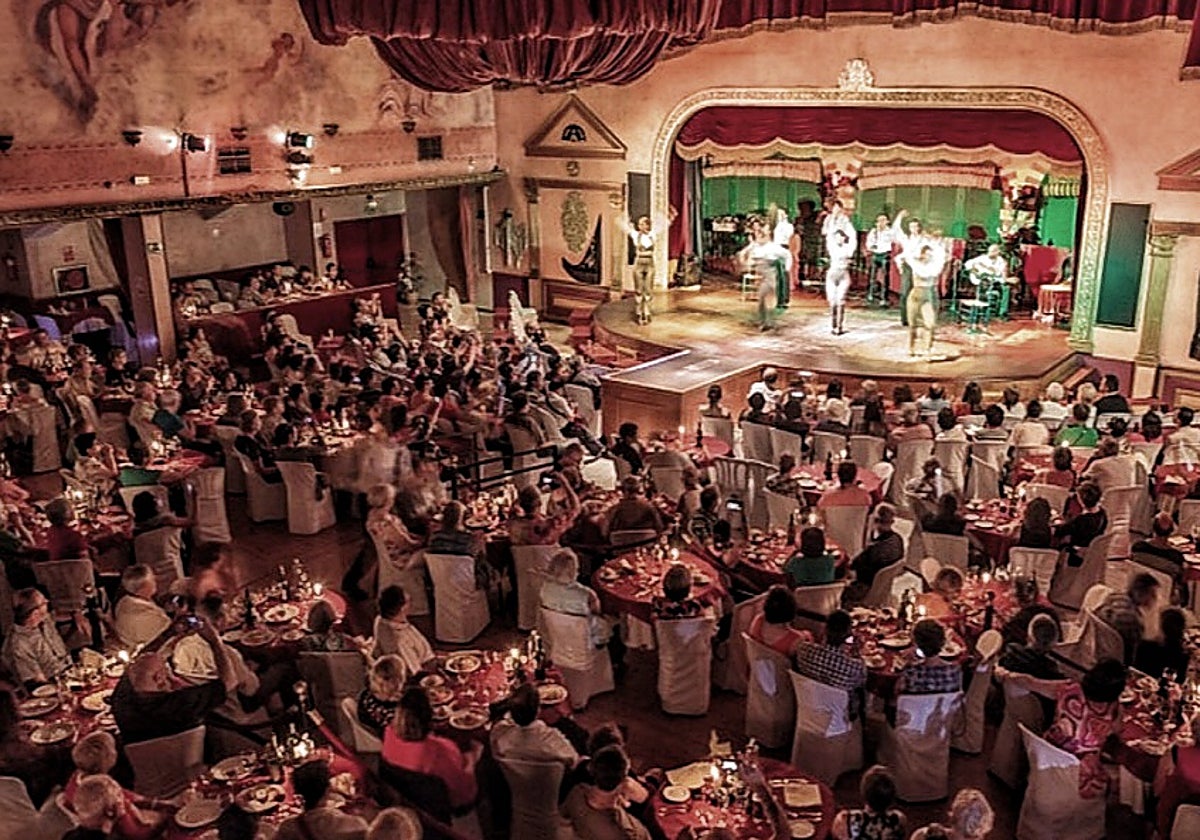Carmen from Seville, 150 years of Bizet's opera
March 2025 marks the anniversary of the premiere of Georges Bizet’s opera. In addition, the novel Carmen turns 180 years this year
Alekk M. Saanders
Monday, 3 March 2025, 20:57
On 3 March 1875, the Paris Opéra-Comique premiered the opera Carmen, based on Prosper Mérimée's novel Carmen, which was first published in 1845.
It is known that the French writer was absolutely enchanted by Spain, which he visited in 1830 for the first time.
Although the action of the beautiful gypsy girl with a great temperament takes place in Seville in the 1820s, it is believed that Prosper Mérimée's impressions from his visits to Malaga and Ronda are also reflected in Carmen.
Perhaps the cradle of bullfighting, Ronda, could have been the inspiration for his story, which features not only tobacco factory workers but also bullfighters among others. Incidentally, it is believed that the novel's representation of almost all layers of society of the time attracted Georges Bizet, who embodied it in an opera.
It is believed that Prosper Mérimée's impressions from his visits to Malaga and Ronda are also reflected in Carmen
However, while the novel Carmen was a notable success, garnering up to over 20 editions by the end of the 19th century, the premiere of the opera Carmen was a failure. It is believed that the half-empty auditoriums and negative reviews in the press so affected the composer that he decided to leave the French capital.
Historians consider that Georges Bizet took the criticisms with him to his grave because he died just three months after the premiere, at the age of 36. Thus Bizet never enjoyed the worldwide recognition of his opera and never set foot in Seville.
Georges Bizet never enjoyed the worldwide recognition of his opera Carmen and never set foot in Seville
In fact, staging an opera in which a flirtatious, free-spirited gypsy woman finds herself murdered by her jealous lover was a risky decision. The production of Carmen sparked real controversy before it even hit the stage.
Bizet's choice of Carmen reportedly caused tensions between the two directors of the Opéra-Comique, resulting in one of them resigning. The Opéra-Comique, once known for its witty, satirical productions, due to Carmen, became the setting for a tragic play with no happy ending.
In 1881, Carmen arrived in Spain. Six years after its premiere in Paris, the Théâtre Lirico in Barcelona staged Carmen starring Celestina Galli-Marie, the first performer of the role in France. Another six years passed when Carmen was first performed at the Zarzuela Theatre in Madrid. Since then, and because it has been translated into Spanish, Carmen has been widely performed. That said, Carmen, apparently, did not reach Seville until 1992. During the Expo, Carmen was staged for the first time at the Maestranza Theatre, which is celebrating the 150th anniversary of the premiere of the legendary opera with June performances of Carmen by the British director Karel Mark Chichon.

Zoom

Carmen in Seville
Carmen was inspired by Andalusian folklore. Bizet's original music is so poignant and seductive that it is easily adapted to flamenco.
"The passion that characterises the protagonist, as well as the turbulent story she tells, make it ideal for presentation through dance and song. And flamenco is known to convey all the feelings of passion and love, rage and jealousy, and even murder.... That is why we have included a fragment from Bizet's Carmen in our daily flamenco show," Manuel Díaz from Tablao Flamenco El Palacio Andaluz told SUR in English.
The artists of El Palacio Andaluz located in Seville on Isla Magica have been performing adaptations of Carmen on the flamenco stage for 30 years. This means that Carmen ‘lives’ and dances in the Andalusian capital, every time awakening a torrent of feelings, twice a day at 7pm and 9.30pm, accompanied by drinks and food if desired. Bookings and more info on elflamencoensevilla.com
